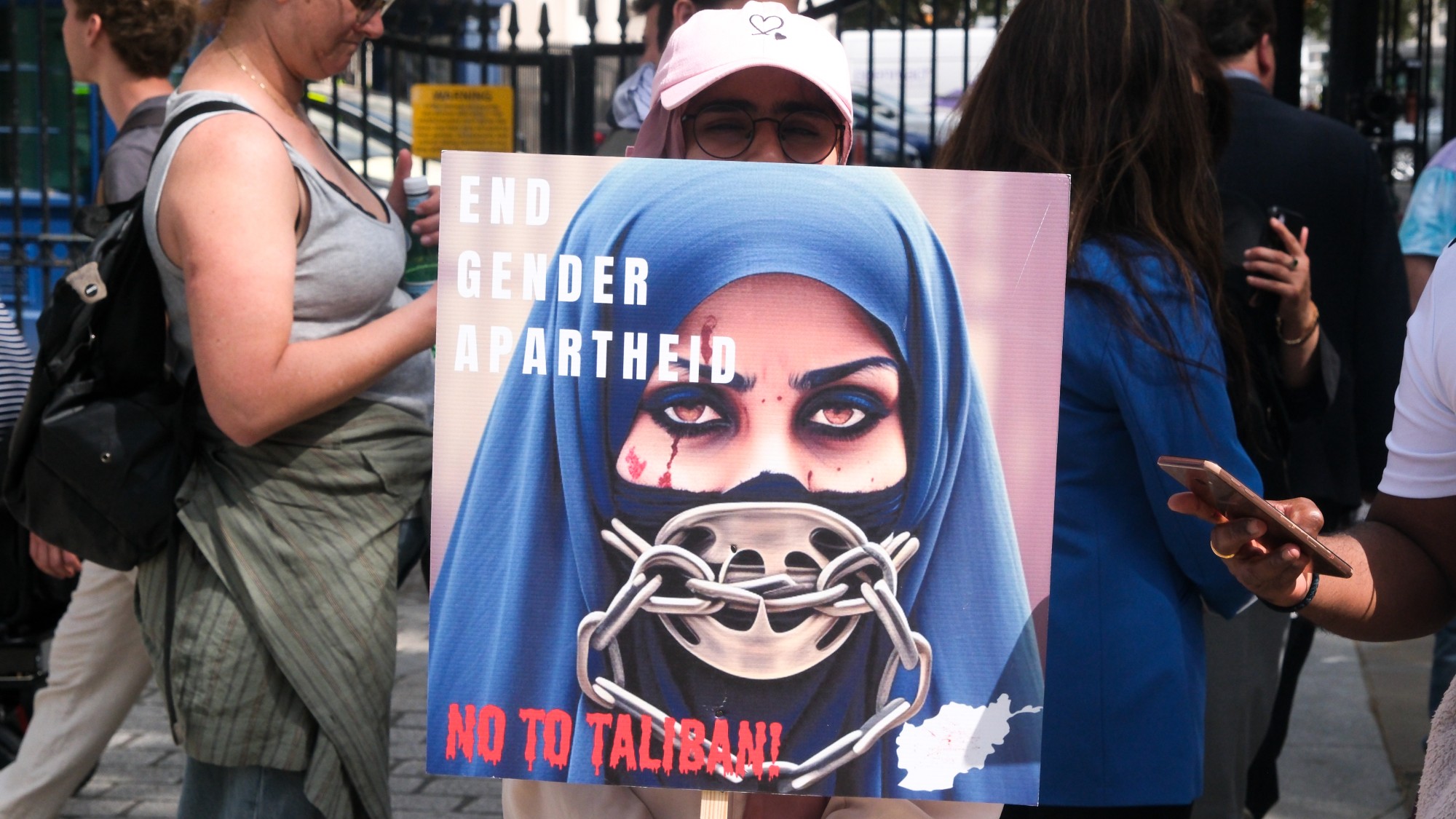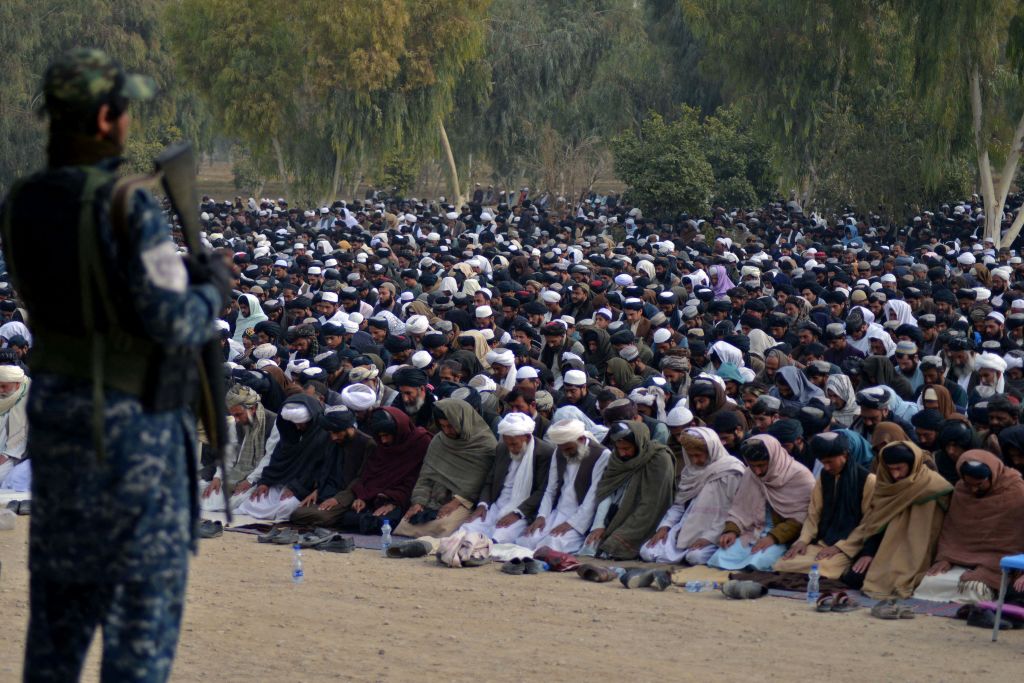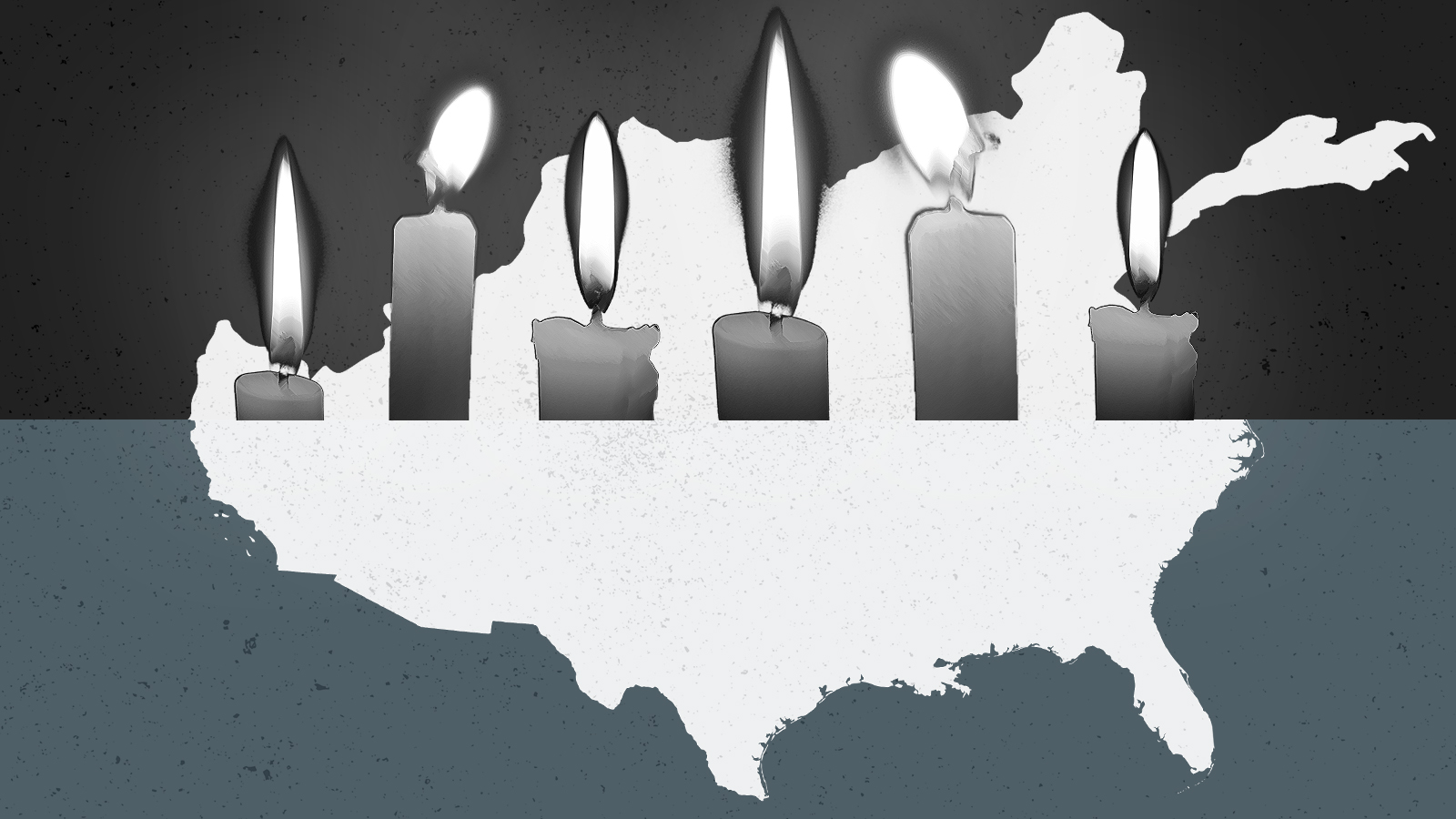The Taliban's ongoing attack on women's rights
The group's changes have sparked humanitarian concerns


A free daily email with the biggest news stories of the day – and the best features from TheWeek.com
You are now subscribed
Your newsletter sign-up was successful
Since the Taliban assumed power in Afghanistan in 2021, the group has made several changes to the country's laws. Many of those adjustments now limit women's autonomy. Some advocates deemed the rules a "gender apartheid," which gives men social and political power and relegates women strictly to household tasks. The Human Rights Watch released a report detailing the Taliban's gender crimes against humanity. Despite global backlash, there is no indication the Taliban will undo its changes.
Curtailing women's education
The Taliban limited Afghan women's access to education, preventing their attendance past the sixth grade. "The ones who went on to develop the (Taliban) movement opted for ideas that are restrictive, orthodox to the extreme, and tribal," said Hassan Abbas, a regional expert who writes about the Taliban, told The Associated Press. The Taliban claimed that women's education did not comply with the group's interpretation of Sharia Law within Islam. The consensus among religious experts, though, is that Islam places equal value on men's and women's education, and the Taliban's ideology "partly comes from a specific school of 19th-century Islamic thought and partly from rural areas where tribalism is entrenched."
In March 2023, the Taliban had announced that school would reopen for all students, however, the group rescinded its announcement, saying that "girls' secondary schools would remain closed until further notice," BBC reported. "Looking into the future and a scenario where nothing changes, where will the female doctors, midwives, gynecologists or nurses come from?" Roza Otunbayeva, head of the UN mission in Afghanistan, said in an email to the AP. "In a strictly gender-segregated society, how will Afghan women be able to get the most basic health care services if there are no female professionals to treat them?"
The Week
Escape your echo chamber. Get the facts behind the news, plus analysis from multiple perspectives.

Sign up for The Week's Free Newsletters
From our morning news briefing to a weekly Good News Newsletter, get the best of The Week delivered directly to your inbox.
From our morning news briefing to a weekly Good News Newsletter, get the best of The Week delivered directly to your inbox.
Circumscribing women's movement
The Taliban placed new, heavy restrictions on unaccompanied and unwed women. Each group is now required to have a male guardian, or mahram, if they want to travel further than a predetermined distance. Women were also banned from several public locations, including parks, gyms and public swimming and bathing facilities. Elizabeth Evenson, international justice director at Human Rights Watch, commented, "The Taliban's cruel and methodical denial of the basic rights of women and girls to remove them from public life has received global attention."
In August 2023, Afghan women were officially banned from visiting Band-e-Amir, one of the country's most famous national parks. Mohammad Khalid Hanafi, head of Afganistan's Vice and Virtue Ministry, remarked "Going sightseeing is not a must for women," when issuing the order. The park was once known for hiring the country's first-ever female park rangers. "Step-by-step, the walls are closing in on women as every home becomes a prison," Heather Barr, associate director of women's rights at Human Rights Watch, told CNN.
Restricting women's dressing options
In May 2022, Taliban supreme leader Mullah Haibatullah Akhundzada mandated that "those women who are not too old or young must cover their faces, except the eyes," BBC reported. The group's Vice and Virtue Ministry also acts as a morality police to enforce the rules and at times detain women not in compliance. To be released, a male guardian was "required to sign a letter guaranteeing her future compliance or else face punishment," Al Jazeera reported. The UN and human rights groups have been largely critical of these rules.
"Enforcement measures involving physical violence are especially demeaning and dangerous for Afghan women and girls," Otunbayeva, head of the UN Afghanistan mission, told Al Jazeera. "Detentions carry an enormous stigma that puts Afghan women at even greater risk." Iran faced a similar human rights controversy following the death of a 22-year-old woman at the hands of the morality police for not wearing a hijab.
A free daily email with the biggest news stories of the day – and the best features from TheWeek.com
Prohibiting women's employment
In addition to the restrictions on dress code and travel without a guardian, Afghan women saw employment opportunities falter. The Taliban banned women from working at the UN and NGOs. According to PBS, "With Afghan women accounting for about a third of NGO staff and a fifth of UN staff in Afghanistan, many programs are only operating partially with male staff or in sectors or locations where the Taliban has granted limited exemptions to the ban." Women have been instrumental in humanitarian work in the region, and the ban could involuntarily cut necessary aid. Some women also served as the primary breadwinners of their families, and the lack of employment could lead to poverty.
The Taliban also closed all women's beauty salons in the country, which employed more than 60,000 women, according to BBC. Salons were employers of women and also one of the only women-only spaces in Afghanistan. For many, salons were a safe space to gather with other women. "This isn't about getting your hair and nails done," Barr, associate director of women's rights at Human Rights Watch, told The New York Times. "This is about 60,000 women losing their jobs. This is about women losing one of the only places they could go for community and support." Women are still allowed to work in security, public health, arts and some other areas but, overall, have been heavily restricted. "It could take years for the ban's consequences to hit Afghan men and trigger a groundswell of unrest," The Associated Press remarked. "Right now, it only affects girls and it's mostly women who have protested the slew of restrictions."
Devika Rao has worked as a staff writer at The Week since 2022, covering science, the environment, climate and business. She previously worked as a policy associate for a nonprofit organization advocating for environmental action from a business perspective.
-
 The Week contest: AI bellyaching
The Week contest: AI bellyachingPuzzles and Quizzes
-
 Political cartoons for February 18
Political cartoons for February 18Cartoons Wednesday’s political cartoons include the DOW, human replacement, and more
-
 The best music tours to book in 2026
The best music tours to book in 2026The Week Recommends Must-see live shows to catch this year from Lily Allen to Florence + The Machine
-
 The Catholic Church's latest scandals in the US
The Catholic Church's latest scandals in the USIn Depth America's largest Christian denomination continues to cause controversy
-
 Who will be the next pope – and how does the conclave work?
Who will be the next pope – and how does the conclave work?In Depth Majority of Catholic cardinals preparing to vote for new pontiff have no experience of conclave and are 'less predictable than ever before'
-
 Afghanistan tops list of dangerous countries for Christians, ending North Korea's 20-year reign
Afghanistan tops list of dangerous countries for Christians, ending North Korea's 20-year reignSpeed Read
-
 America's core misunderstanding about the Taliban
America's core misunderstanding about the Talibanopinion Americans don't die for religion anymore. Did we forget many people still do?
-
 Asia the ‘new hotbed of Christian persecution’
Asia the ‘new hotbed of Christian persecution’Speed Read Report finds threat levels rising in China and India amid government crackdown and rise of religious nationalism
-
 When did marriage begin?
When did marriage begin?In Depth The institution of marriage has become something of a political battlefield. How did marriage begin and why?
